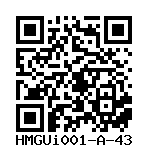hINS-T2A-H2B-Cherry (-/-), hiPSC-INS-T2A-H2B-Cherry reporter, INSCherry/Cherry
HMGUi001-A-43
General
Cell Line |
|
| hPSCreg name | HMGUi001-A-43 |
| Cite as: | HMGUi001-A-43 |
| Alternative name(s) |
hINS-T2A-H2B-Cherry (-/-), hiPSC-INS-T2A-H2B-Cherry reporter, INSCherry/Cherry
|
| Cell line type | Human induced pluripotent stem cell (hiPSC) |
| Similar lines |
HMGUi001-A (XM001, BIHi043-A) HMGUi001-A-8 (C-PEP-mCherry-hiPSC) HMGUi001-A-5 (ΔINK4 T2D risk region hiPSC) HMGUi001-A-42 (NEUROD2 nVenus/nVenus iPSCs) HMGUi001-A-1 (hINS-T2A-H2B-Cherry (+/-), HMGUi001-A-1) HMGUi001-A-4 (hiPSC-ARX-T2A-H2B-CFP-Flag) HMGUi001-A-22 (NCS1-KO Clone 19) HMGUi001-A-46 (ARX-CFP/PAX4-mCherry, ARX-T2A-H2B-CFP/H2B-mCherry-RGSHis-T2A-PAX4, ARXnCFP/nCFP/PAX4mCherry/mCherry) |
| Last update | 1st July 2025 |
| Notes | Insulin reporter line, nuclear cherry, homozygous. For the heterozygous line see HMGUi001-A-1. For the use of the cell line a material transfer agreement with HMGU is obligatory and can be requested from material-transfer@helmholtz-munich.de. |
| User feedback | |
Provider |
|
| Generator | Institute of Diabetes and Regeneration Research (IDR) |
| Owner | Institute of Diabetes and Regeneration Research (IDR) |
| Distributors | |
| Derivation country | Germany |
External Databases |
|
| BioSamples | SAMEA114382011 |
General Information |
|
| Publications | |
| * Is the cell line readily obtainable for third parties? |
No |
| Subclone of | |
Donor Information
General Donor Information |
|
| Sex | female |
| Ethnicity | Caucasian |
Phenotype and Disease related information (Donor) |
|
| Diseases | No disease was diagnosed.
|
| Family history | no |
| Is the medical history available upon request? | no |
| Is clinical information available? | no |
Other Genotyping (Donor) |
|
| Is there genome-wide genotyping or functional data available? |
No
|
Donor Relations |
|
| Other cell lines of this donor | |
External Databases (Donor) |
|
| BioSamples | SAMEA5696688 |
Ethics
Also have a look at the ethics information for the parental line
HMGUi001-A
.
| Is there an MTA available for the cell line? | Yes |
| For generation of the cell line, who was the supplier of any recombined DNA vectors or commercial kits used? | Invitrogen |
| Are you aware of any constraints on the use or distribution of the cell line from the owner or any parties identified in the query above? | No |
hIPSC Derivation
General |
|
|
The source cell information can be found in the parental cell line
HMGUi001-A.
|
|
| Passage number reprogrammed | 17 |
Reprogramming method |
|
| Vector type | Integrating |
| Vector | Plasmid |
| Is the used vector excisable? |
Yes |
| Absence of reprogramming vector(s)? |
No |
| Reprogramming vectors silenced? |
No |
| Methods used |
Immunostaining, PCR, Sequencing
|
Vector free reprogramming |
|
| Type of used vector free reprogramming factor(s) |
None
|
Other |
|
| Selection criteria for clones | GFP Expression-positive, FACS sorting, colony picking from single cell seeding |
| Derived under xeno-free conditions |
Yes |
| Derived under GMP? |
No |
| Available as clinical grade? |
No |
Culture Conditions
| Surface coating | Matrigel/Geltrex |
| Feeder cells |
No |
| Passage method |
Enzyme-free cell dissociation
EDTA
|
| O2 Concentration | 21 % |
| CO2 Concentration | 5 % |
| Medium |
Other medium:
Base medium: StemMACS iPS-Brew XF, human
Main protein source: xeno-free Serum concentration: 0 % |
| Has Rock inhibitor (Y27632) been used at passage previously with this cell line? | Yes |
| Has Rock inhibitor (Y27632) been used at cryo previously with this cell line? | No |
| Has Rock inhibitor (Y27632) been used at thaw previously with this cell line? | No |
Characterisation
Analysis of Undifferentiated Cells
Differentiation Potency
Genotyping
Karyotyping (Cell Line) |
|
| Has the cell line karyotype been analysed? |
Yes
46, XX
Passage number: 29
Karyotyping method:
G-Banding
|
Other Genotyping (Cell Line) |
|
Genetic Modification
| Disease/phenotype related modifications |
|
| Genetic modifications not related to a disease |
|


Login to share your feedback, experiences or results with the research community.